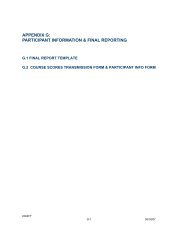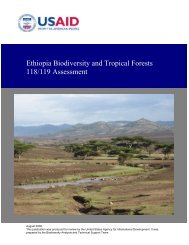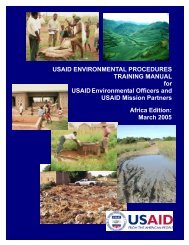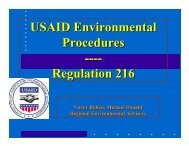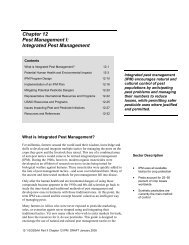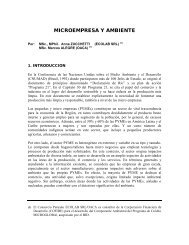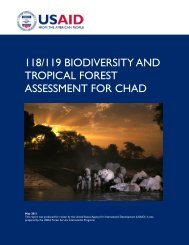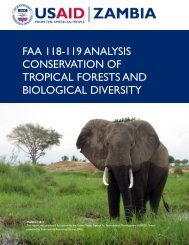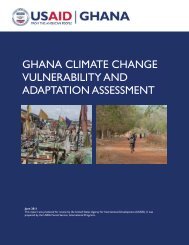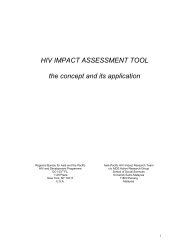118/119 Biodiversity and Tropical Forest Assessment for Angola
118/119 Biodiversity and Tropical Forest Assessment for Angola
118/119 Biodiversity and Tropical Forest Assessment for Angola
- No tags were found...
You also want an ePaper? Increase the reach of your titles
YUMPU automatically turns print PDFs into web optimized ePapers that Google loves.
B3. Legal Instruments Related to the EnvironmentMost of <strong>Angola</strong>’s legal framework pertaining to the environment dates back to thecolonial era, is incompatible with <strong>Angola</strong>’s status as an independent <strong>and</strong> democraticcountry, <strong>and</strong> does not incorporate the last four decades of advancements in conservation<strong>and</strong> environmental management thinking. Nonetheless, since the end of hostilities in2002 there have been important advances in <strong>Angola</strong>’s legal environmental framework.Below is a synopsis of key legal instruments pertaining to the environment.B3a. International Conventions<strong>Angola</strong> ratified several international conventions <strong>and</strong> protocols with a bearing on theenvironment. A selection of these is below (MINUA 2006b), with ratification dates:• Convention on Biological Diversity (1998)• United Nations Convention on the Law of the Sea (1990)• International Treaty on Plant Genetic Resources, (2006)• United Nations Convention to Combat Desertification (2000)• Convention on the Conservation of Migratory Species (2003)• Convention on International Trade on Endangered Species (CITES) (2001) 6• International Convention on Pollution Prevention by Ships (MARPOL 73/78)• International Convention on Cooperation <strong>and</strong> Combat against (shipping) Pollutionby Hydrocarbons• United National Framework Convention on Climate Change (UNFCCC 2000)• Kyoto Protocol (2007)It is important to note that <strong>Angola</strong> is not a party to the Ramsar Convention on Wetl<strong>and</strong>s,a significant omission since the country has some of the most important wetl<strong>and</strong>s inSouthern Africa. Furthermore, <strong>Angola</strong> has yet to produce its first greenhouse gasemissions national communication as required by the UNFCCC.B3b. African ConventionsIn addition to global treaties, <strong>Angola</strong> has signed the following continent-wide accords:• The African Convention <strong>for</strong> the Conservation of Nature <strong>and</strong> Natural Resources• The Lusaka Accord on concerted coercive measures against the illegal commerce ofwild fauna <strong>and</strong> floraB3c. Southern African Development Conference ProtocolsAt the Southern Africa regional level, <strong>Angola</strong> has signed the following protocols:• Fisheries Protocol (signed, ratified, but not published)• Protocol <strong>for</strong> the Conservation of Wildlife (signed but not ratified)• Protocol on <strong>Forest</strong>ry Activities (signed but not ratified)• Protocol on Shared Water Resources (signed but not ratified)6 Since the ratification <strong>and</strong> adoption of CITES has not yet been published in the Official Diary, its legal status is inlimbo.<strong>118</strong>/<strong>119</strong> BIODIVERSITY AND TROPICAL FOREST ASSESSMENT FOR ANGOLA 15





